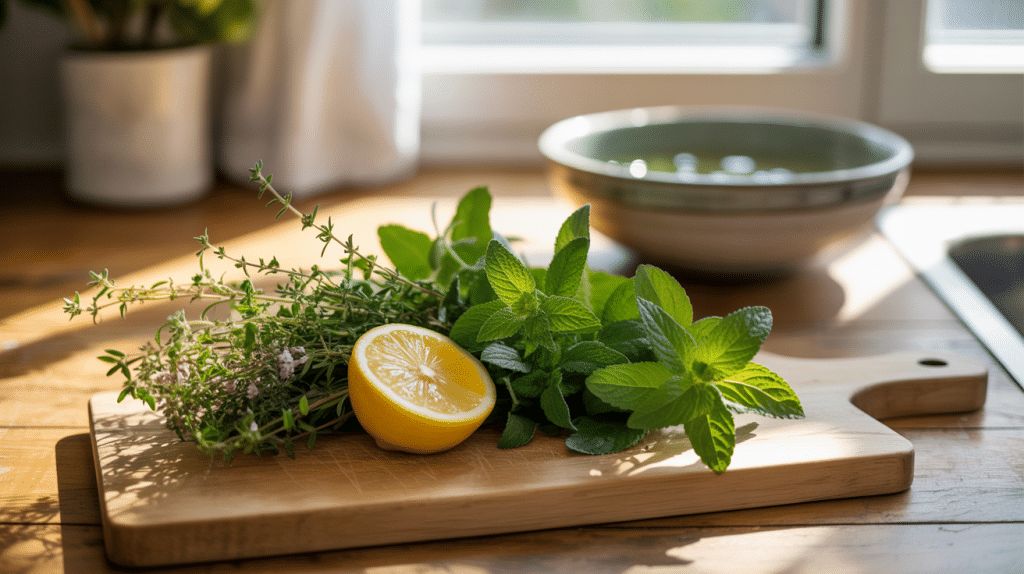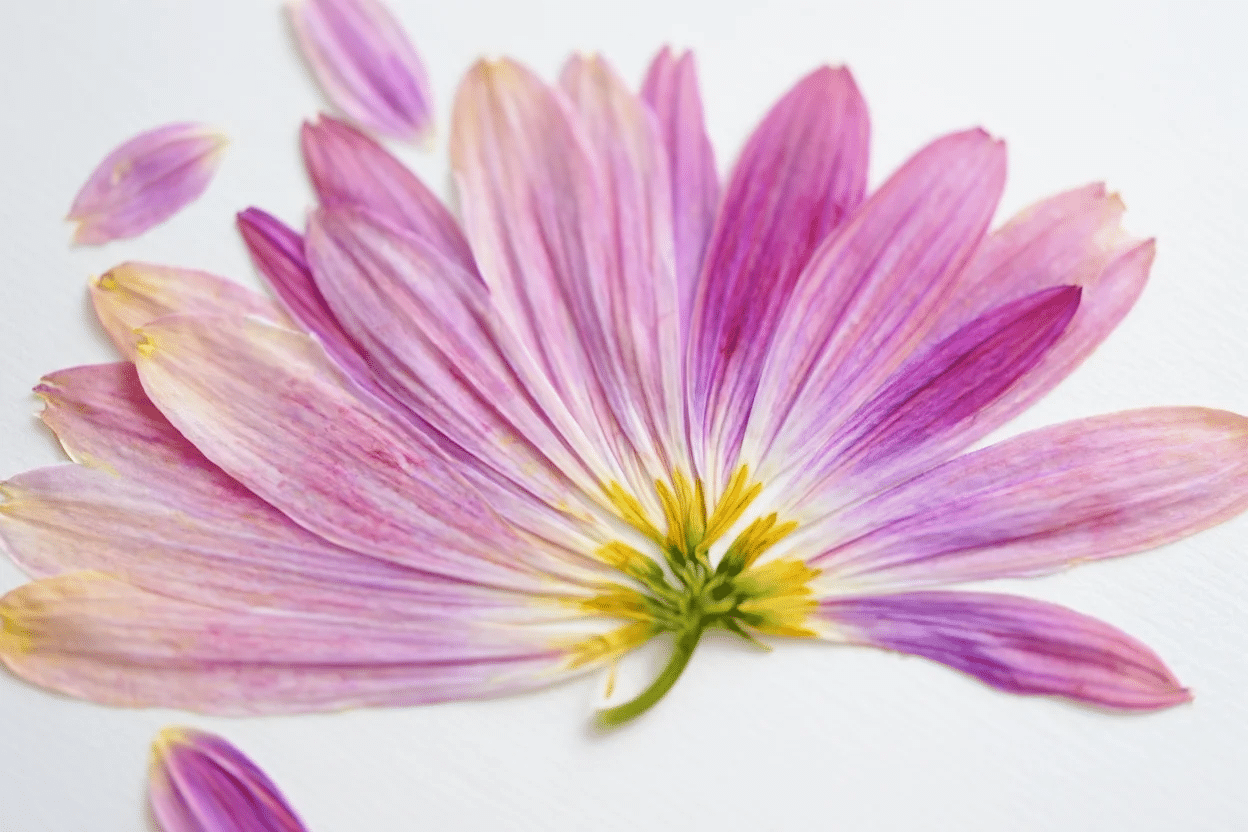Have you noticed how a hint of lemon herb can turn a basic dish into something special? Many home cooks miss this simple trick that professional chefs use daily.
But here’s a better question: How can you use lemon herbs to make your cooking stand out without spending hours in the kitchen? The secret lies in how these bright herbs – thyme, verbena, and balm – create magic when they touch your food.
Just a pinch can make the difference between an ordinary meal and one that makes people pause mid-bite.
Ready to learn how these herbs can change your cooking?
I’ll show you five simple ways to use lemon herbs that will make your friends ask for your recipes. Let’s start with the basics.
What Makes an Herb “Lemon”? Popular Varieties and Their Unique Qualities

The signature “lemon” scent in herbs originates from natural compounds such as citral, limonene, and citronellal. These oils also exist in citrus fruits. Each plant has its own mix of these oils.
This creates a range of lemony notes, from sharp to sweet. These lemon herbs bring a fresh citrus feel to both gardens and meals.
1. Lemon Balm (Melissa officinalis)
- Soft, mint-like leaves with a mild lemon smell
- Works well in teas, salads, and sweet treats
- Grows easily and brings bees to your garden
2. Lemon Basil (Ocimum basilicum)
This herb mixes sweet basil flavor with a light lemon tang. It works best when used fresh in salads, pasta, and meat soaks. Lemon basil has a shorter life than common basil. It makes small white flowers that bees love. You can tell it from other basil varieties by smell – crush a leaf and you’ll get that clear lemon scent right away.
It pairs well with fish and chicken dishes.
3. Lemongrass (Cymbopogon citratus)
When cooking with lemongrass, you’ll want to remove it before serving or chop it very fine. The tough fibers can be hard to eat. I keep some in my freezer for when I want to make a quick soup. Just a six-inch stalk can flavor a whole pot of broth.
4. Lemon Thyme (Thymus x citriodorus)
This low-growing herb has tiny leaves and a strong lemon smell. It adds citrus notes to meats, fish, and veggie dishes. I find it keeps its flavor better in cooking than some other lemon herbs. It also makes a nice ground cover in sunny spots in the garden.
5. Lemon Verbena (Aloysia triphylla)
- Known for its strong, pure lemon scent
- Perfect for teas, desserts, and sweet syrups
- Loses its leaves in winter but comes back in spring
6. Lemon-Scented Geranium (Pelargonium crispum)
This plant is grown mostly for its smelly leaves, which can add scent to sugars, cakes, and dried flower mixes.
Unlike the other herbs, it’s not often eaten directly but used more to pass on its scent to other foods. The leaves can also be pretty in flower arrangements.
Culinary Uses of Lemon
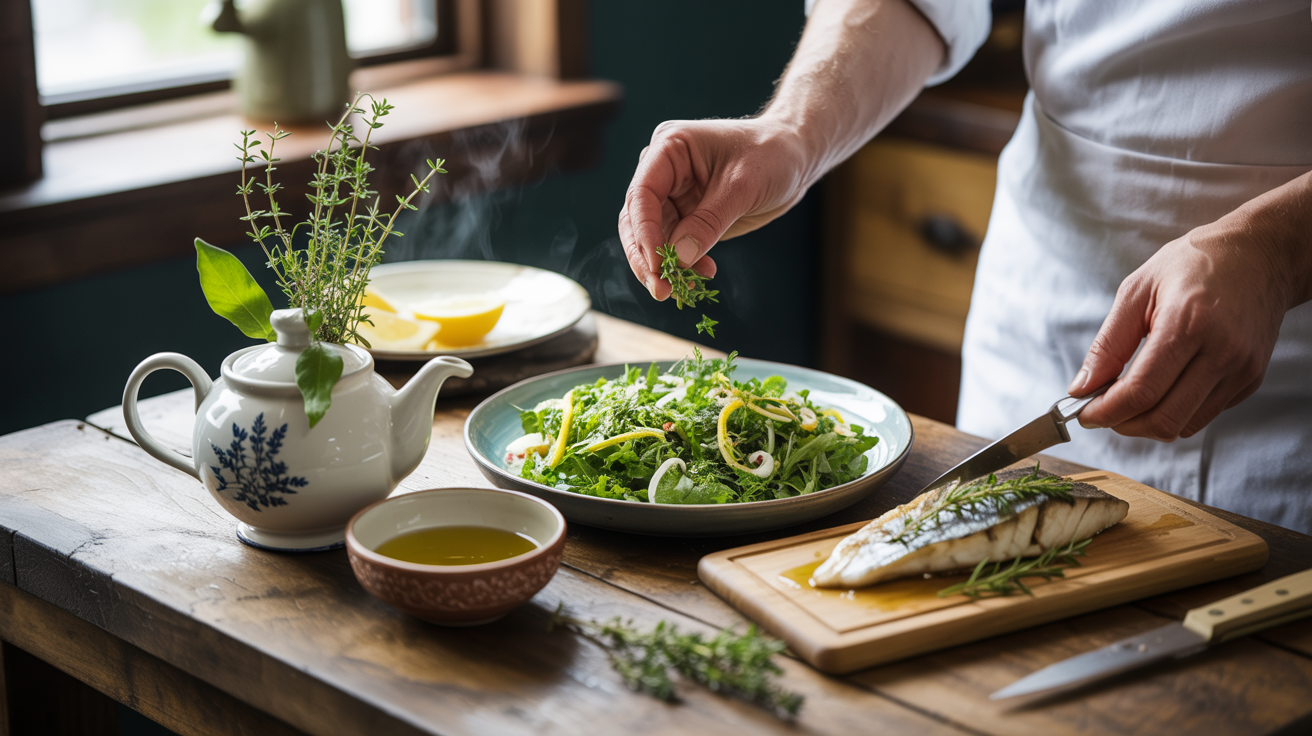
Lemon herb offers a fresh twist to cooking without the acidity of lemons. I use them in both hot and cold dishes, often to cut through rich foods. The bright notes can lift a heavy meal and add interest to simple ones.
My personal favorite recipe using lemon has to be Greek Lemon Orzo Soup.
Here are some quick ways to include lemon herbs in your kitchen:
- Add fresh lemon herbs to salad dressings for a citrus kick
- Infuse olive oil with lemon thyme for bread dipping
- Mix chopped lemon balm into fruit salads
- Use lemon basil in tomato dishes to boost flavor
- Steep lemon verbena in cream before making ice cream
Baking also benefits from these plants. A few lemon herbs mixed into cookie dough or cake batter can add subtle flavor notes that surprise the taste buds. This works especially well with plain recipes like Meyer Lemon Cake.
For drinks, lemon herbs shine brightly. I make sun tea with lemon balm in summer. The leaves sit in a glass jar of water in the sun for a few hours. The result is a clear, light drink that needs no sugar. Meat and fish pair well with these herbs, too.
Growing Lemon Herbs at Home
Growing your lemon herbs can be a fun and rewarding project. You’ll have fresh flavors right at your fingertips, ready to add to meals.
Here’s how to grow your herb at home:
Step 1: Choose the Right Location
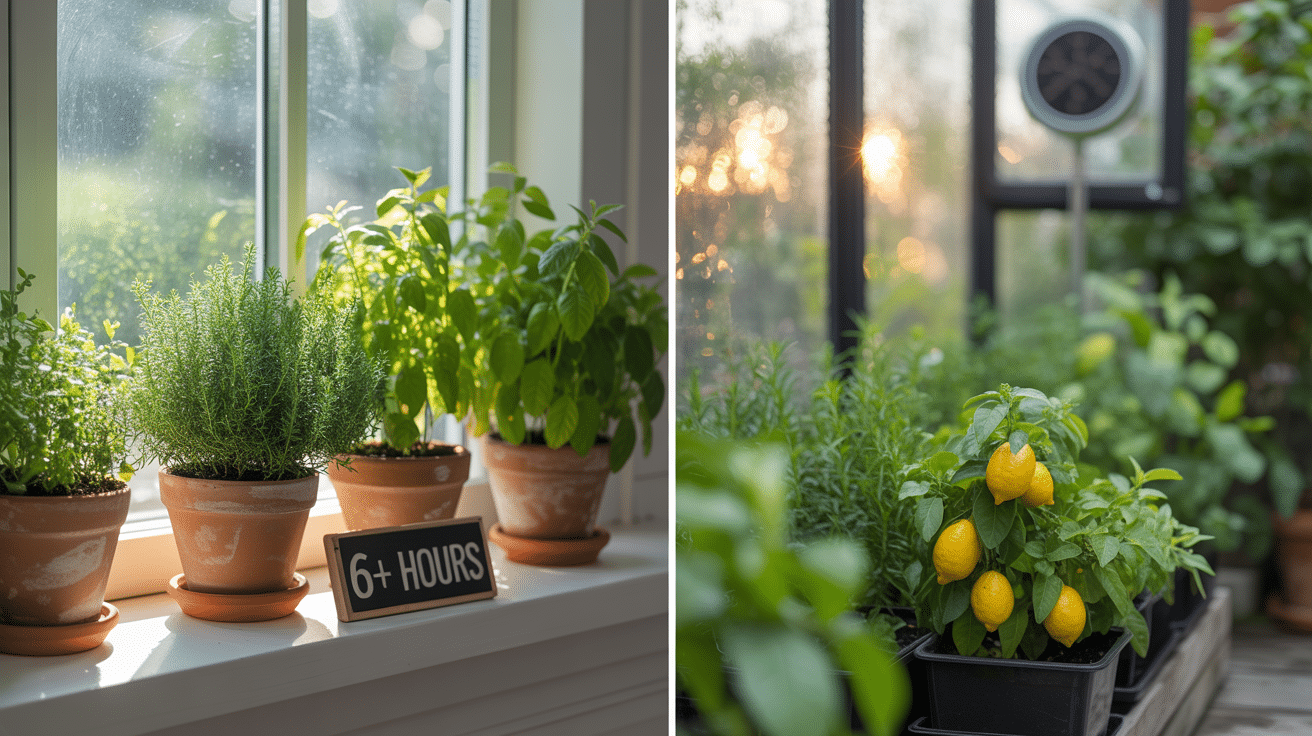
Most lemon herbs need at least 6 hours of sun daily. Lemon balm can handle some shade, but lemon verbena and lemon thyme need full sun. Indoor growers should use south-facing windows.
Good air flow helps prevent mold, so avoid stuffed corners or closed spaces.
Step 2: Prepare Your Soil
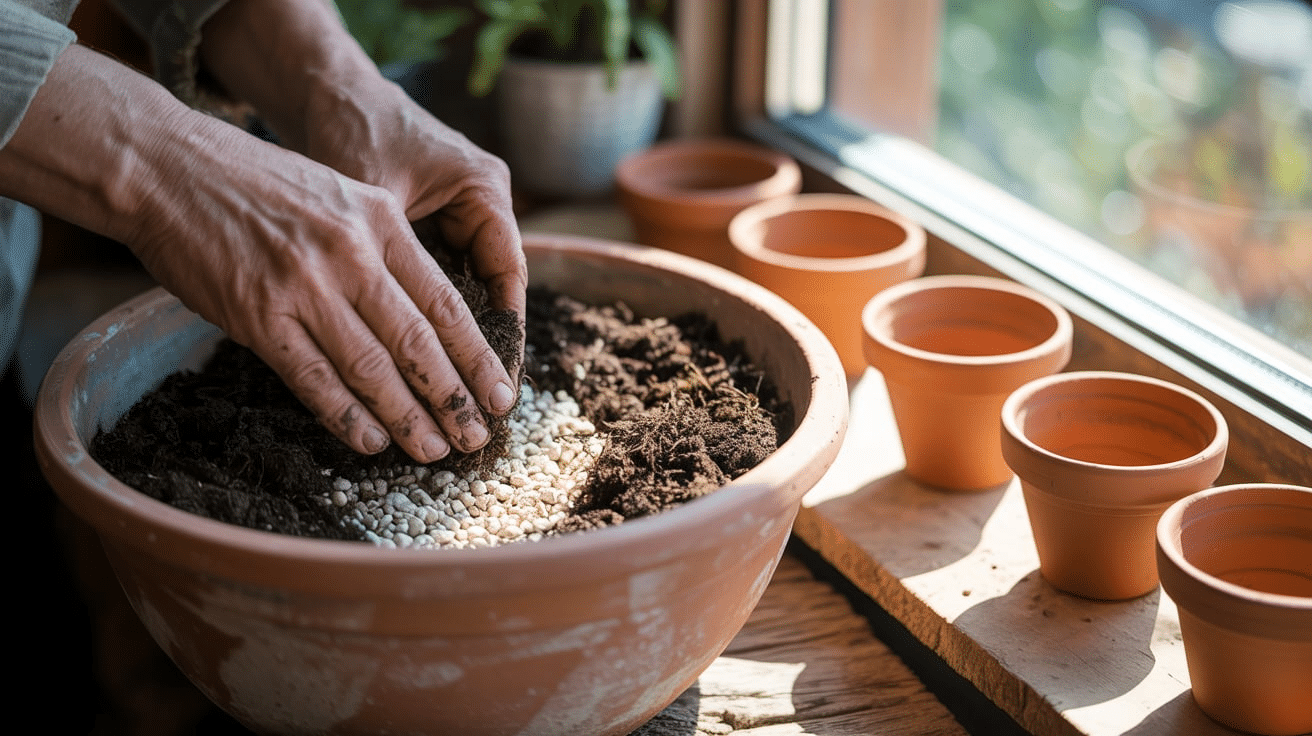
Use well-draining soil that isn’t too rich. Too much plant food reduces the flavor oils.
Add sand or small rocks to help with drainage; most lemon herbs like a pH between 6.0 and 7.0. Pot growers should mix regular potting soil with perlite.
Step 3: Planting Methods
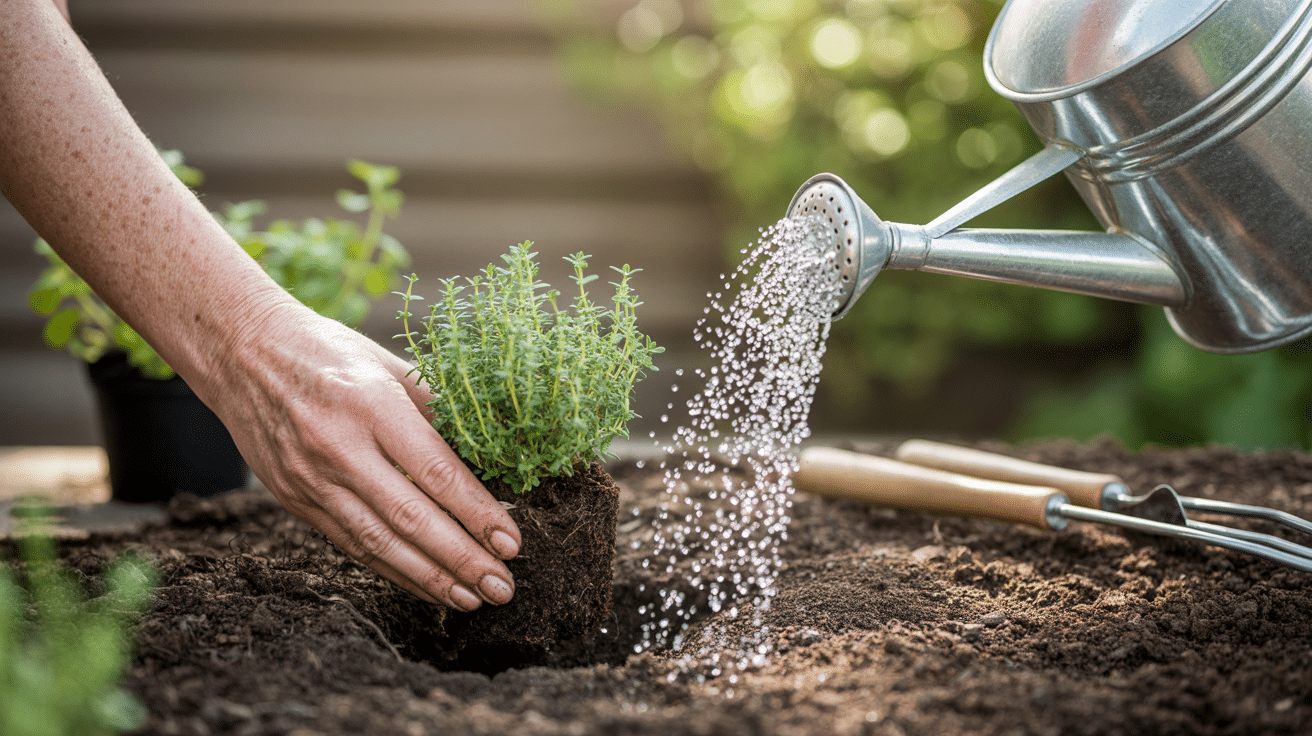
Small plants give faster results than seeds. Space them based on full size – lemon balm needs 18 inches, while lemon thyme needs just 8-10 inches.
Keep the plant crown at the same level as it was in its store pot. Water well after planting to settle roots.
Step 4: Care and Maintenance
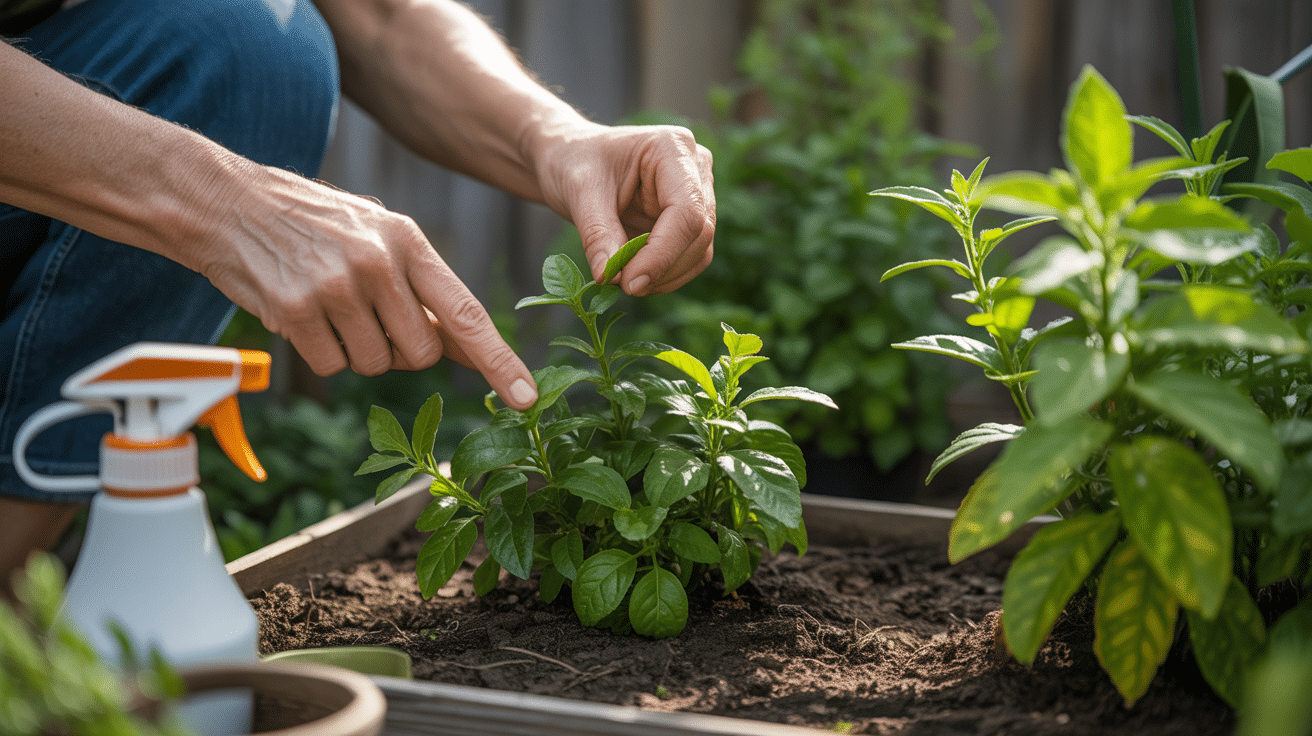
Water when the top inch of soil feels dry to the touch. Most lemon herbs like to dry out between drinks. Trim often to keep plants bushy. For bug control, skip chemicals and use gentle soaps or a strong water spray instead.
Step 5: Harvesting and Using
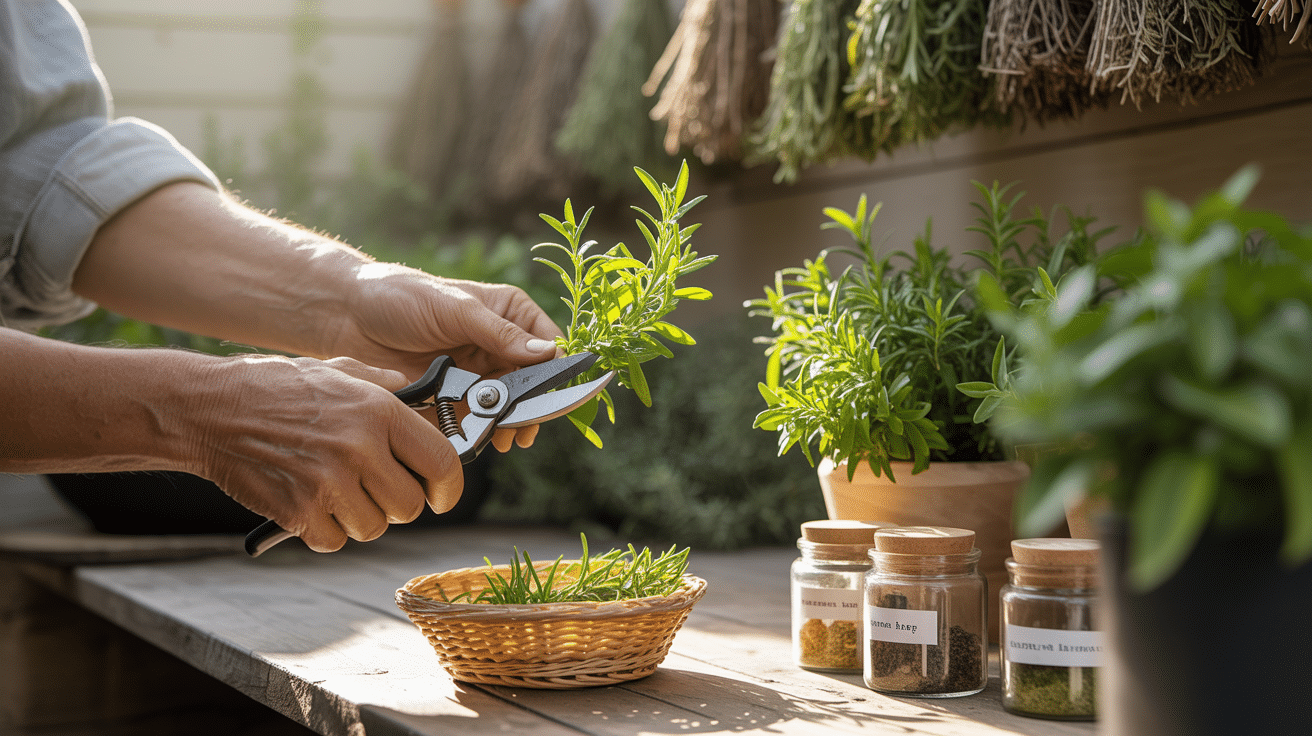
Pick herbs in the morning, after the dew has dried but before the hot sun pulls out the oils. Take no more than one-third of the plant at once. Use clean, sharp tools for cutting.
To dry, hang small bunches upside down in a dark, dry spot with good air flow.
Beyond the Kitchen: Other Benefits of Lemon Herbs
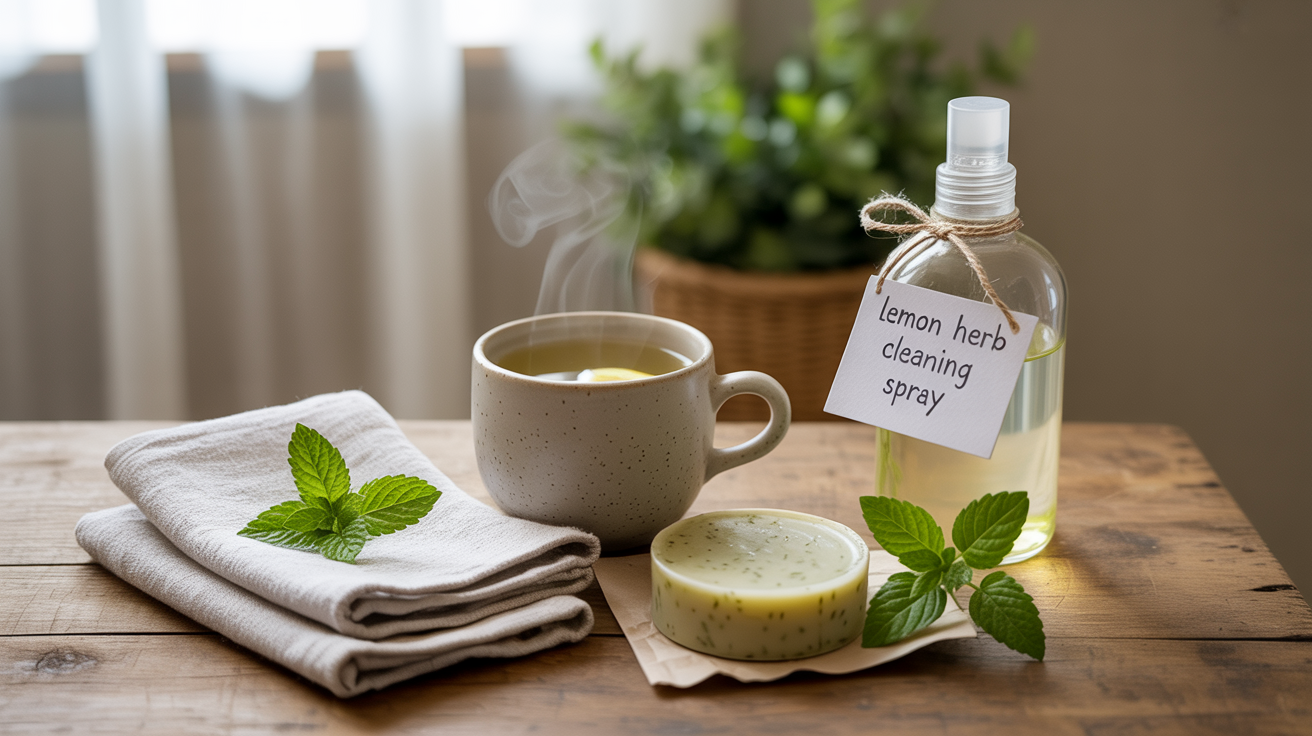
Lemon herbs offer much more than just cooking value. These plants have been used for centuries in various ways for health, home, and beauty.
The same compounds that give lemon herbs their fresh scent also provide several practical benefits.
- Fresh lemon herb leaves can be placed in drawers to repel moths and other insects.
- Dried lemon balm makes a calming tea that may help with sleep issues
- Lemon thyme oil has mild germ-fighting qualities when used in home cleaners
- A few drops of lemon herb oil on a pillow can promote relaxation
- Lemon herbs may help ease stress when their scent is inhaled
- Using lemon herbs in foot soaks can refresh tired feet
- Many crafters use dried lemon herbs in handmade soaps and candles
- The leaves can be used as natural scrub materials in the bath
- Some gardeners plant lemon herbs as border plants to deter certain pests
Here are my Recommendations if You’re Looking to Buy Lemon Herb
1. Nimkish Lemon Herb Chicken Spice Mix 50g

- Authentic, ready-to-cook spice blend for herby, zingy chicken
- No added MSG, artificial flavors, colors, or preservatives
- Requires minimal preparation- add chicken and oil
- Price: $4.99
- Looking to add some zest? Buy: Nimkish Lemon Herb Chicken Spice Mix
2. Litehouse Organic Lemon Herb Vinaigrette Dressing
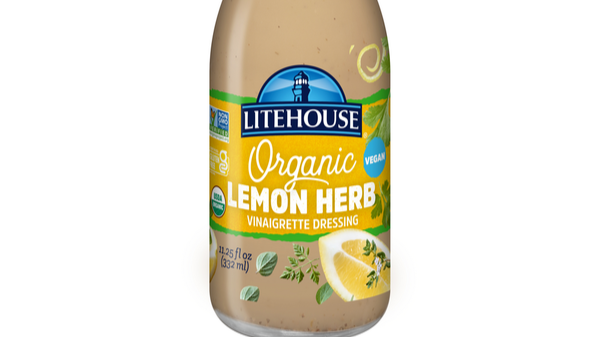
- Crisp, bright lemon taste with blended herbs
- Price: $4.49 (varies by retailer)
- Add a touch of organic lemon with Litehouse Organic Lemon Herb Vinaigrette Dressing
3. Ann Clark Premium Lemon Flavoring

- Bold citrus flavor
- Water-based formulation, meaning that it is alcohol-free
- Price: $14.99
- Like this? Click here to buy: Ann Clark Premium Lemon Flavoring
Wrapping It Up
Looking back at what we’ve covered, lemon herb truly offers something special to gardens and kitchens. It brings a fresh citrus note without the acidity of lemons.
So what’s the takeaway? These versatile plants deserve a spot in your garden. Even a small pot on a windowsill can provide you with fresh flavors all season long. Why not start with just one variety? Lemon balm is forgiving for beginners, while lemon thyme offers big flavor in a small package.
Have you grown lemon herbs before? I’d love to hear about your experiences in the comments below.


